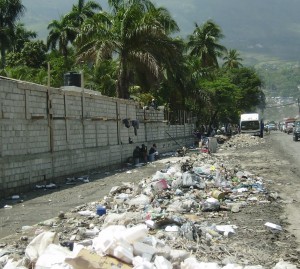Waste management: How cities in India twin with those in Haiti
 Living in Port au Prince, Haiti makes for particular interest and a peculiar sort of clarity about urban waste management elsewhere in the world. Perhaps that should read urban waste mis-management. How else to explain that Indian cities are practically drowning in their own excreta? That’s what an article in the Guardian Environment Network said, nearly two years ago.
Living in Port au Prince, Haiti makes for particular interest and a peculiar sort of clarity about urban waste management elsewhere in the world. Perhaps that should read urban waste mis-management. How else to explain that Indian cities are practically drowning in their own excreta? That’s what an article in the Guardian Environment Network said, nearly two years ago.
Click here to read the piece in full. But even if you don’t, suffice to say that it describes the horrifying reality of waste disposal in India. In many parts of the country, it’s largely seen as a concept, not reality.
In 2000, says the piece, “India finally framed a solid waste policy based on the committee’s report, requiring all cities to devise comprehensive waste-management programmes that include household collection of segregated waste, recycling and composting – but this was never implemented.”
This is a huge problem considering that some experts estimate that waste generation in India’s cities will increase five-fold by 2047, touching 260 million tonnes per year.
For me, living in Haiti, there was particular resonance in one particular quote. It’s from Almitra Patel, a civil engineer in the southern Indian city of Bangalore, which is known as a global info-tech hub. But it’s a great deal less well known for dumping raw, untreated sewage in its lakes and wetlands, so much so that all the frogs died.
“The marshlands (around Bangalore) have now turned into a deep, black stinking river of sewage that flows in an open channel through dense habitation,” Ms Patel is quoted to say.
Sounds familiar.


